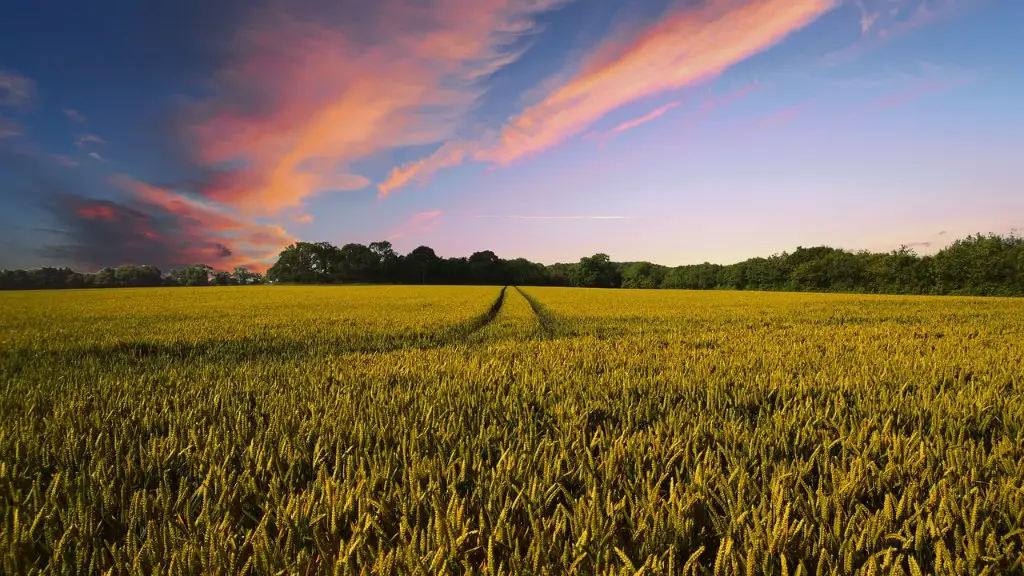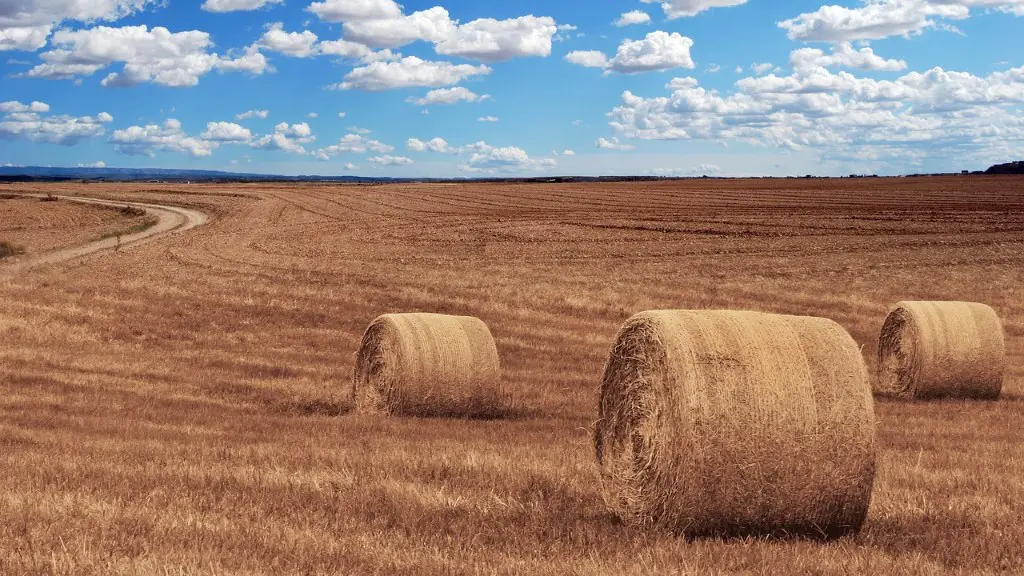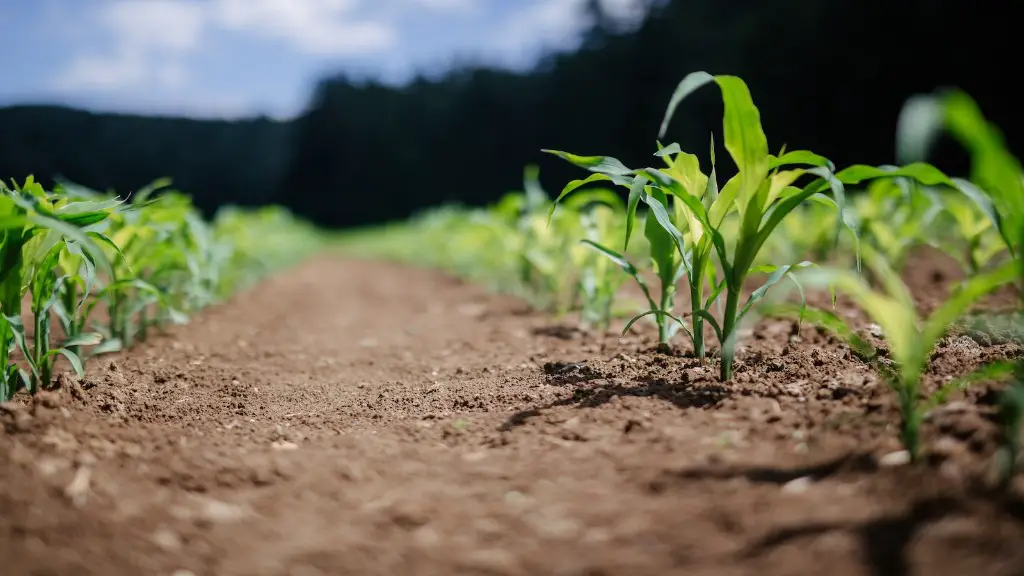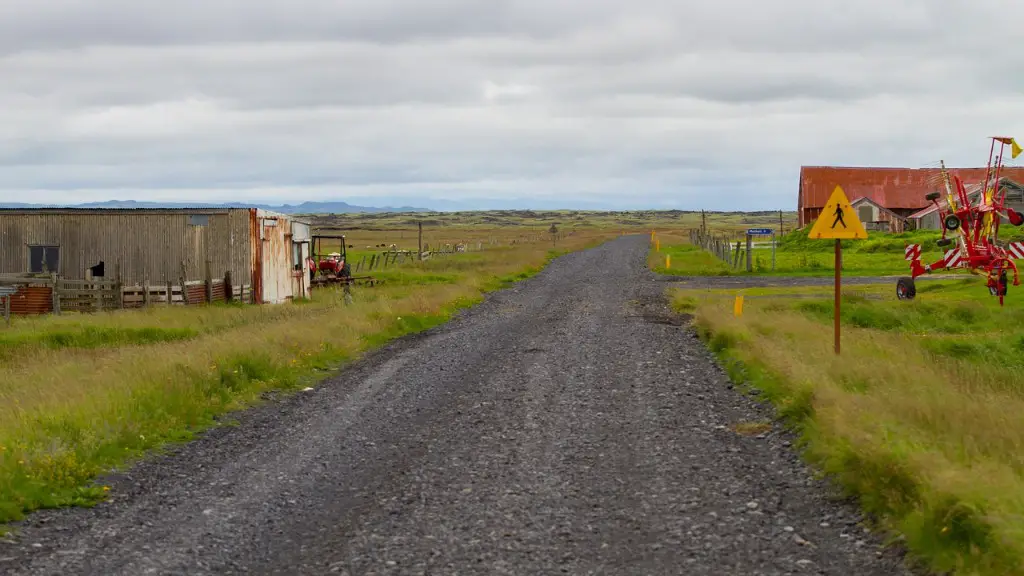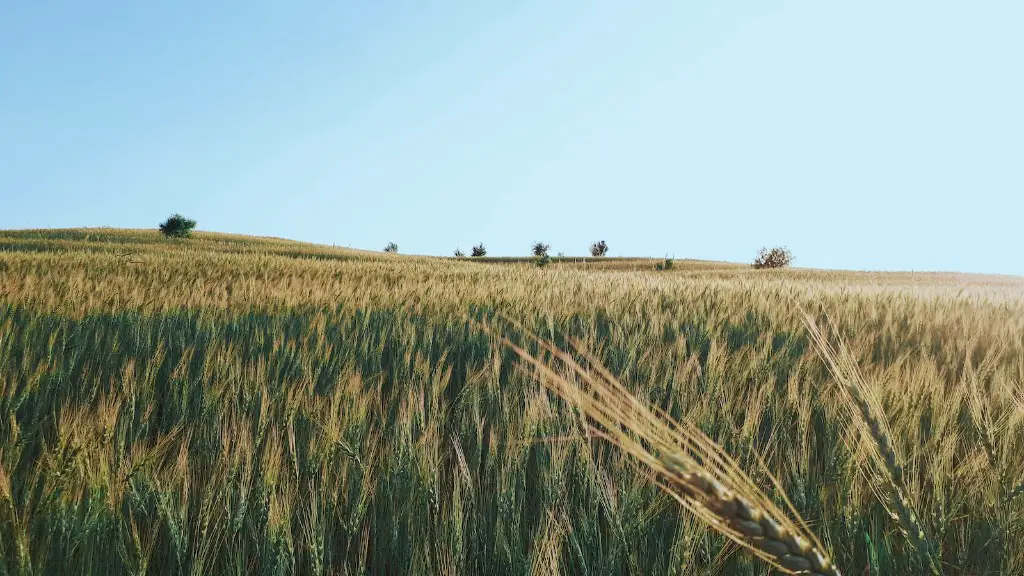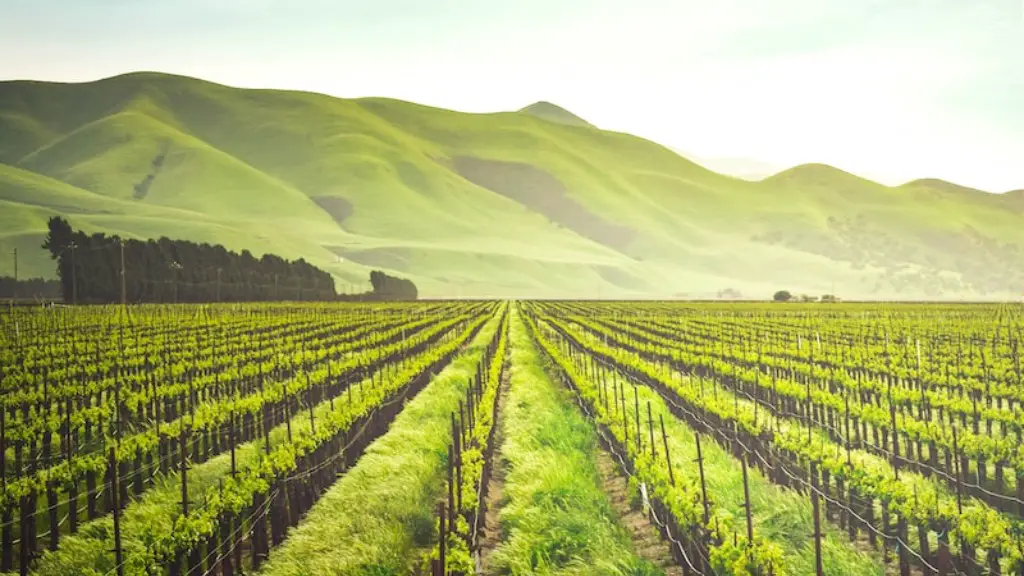Sustainable agriculture is a rapidly growing field, with many potential career paths for those who hold a degree in the subject. With a degree in sustainable agriculture, one can be a farmer, educator, scientist, entrepreneur, or policy maker. There are a variety of ways to apply one’s knowledge and skills to several career paths, depending on the individual’s interests and goals.
A farmer can use their sustainable agriculture degree to grow crops and livestock while still preserving the environment. This includes utilizing methods such as crop rotation, conserving water and soil, and employing methods of pest control to keep in accordance with sustainable methods. Not only is this a wonderful way to make a living, but it is also satisfying to know one can help contribute to the preservation of our planet.
Those that may not enjoy the hands-on elements of working on a farm, may wish to pursue an educational career. One can use their degree in sustainable agriculture to work in a classroom to educate others on sustainable methods in farming and how to lead a more sustainable lifestyle. Through education, methods for improvement can be implemented, leading to a brighter future for our planet.
For those who wish to apply their knowledge to research and make advancements in sustainable technologies, a degree in sustainable agriculture can provide potential career opportunities in the science fields. Research can be conducted in topics such as new sustainable agriculture methods, leading to potential solutions to the global climate crisis.
For those who are looking for a business focused venture, there is the potential to build a business with a degree in the subject. One can use sustainable methods in the business field, whether it be starting a organic farm or creating a business that directly helps in the fight against climate change.
Lastly, those with a degree in sustainable agriculture have the potential to take on a more political-focused role. Working in politics, those with a degree in this field can help implement policies and regulations that seek to create a more sustainable future.
The Role of Innovation in Sustainable Agriculture
In sustainable agriculture, there is always room for innovation and research. By utilizing the most up to date technology, new methods and solutions can be discovered, leading to better practices for farming and production. Farmers, researchers, and policy makers can use new technology and practices to work towards being more efficient and sustainable.
The use of smart technology, robotics, and remote sensing can all be used to help farmers increase their efficiency and help the environment. Smart technology, for example, allows farmers to track soil health and water levels in real time. This can help reduce the amount of water and use of pesticides, leading to healthier soil. Additionally, robotics can be used to plant and pick crops, making the job faster and more efficient.
Remote sensing technology provides a host of information that can be used to help farmers make decisions on how to manage their ground, as well as track environmental factors such as temperature and precipitation. This can help farmers stay on top of the changing conditions and make adjustments when needed. This technology can also be used for monitoring pollutants and emissions, as well as track the spread of disease.
In addition to technology and innovation, sustainable agriculture can benefit from research in the field. Researchers can look into different farming techniques and potential solutions for sustainable food production. Such research can help lead to new and more efficient ways to grow crops and raise animals while preserving the environment.
Finally, sustainable agriculture requires a holistic approach. It is essential to focus not only on the environment, but also the communities who light their livelihoods on the land. This includes actively working to reduce inequality and create opportunities for farmers to achieve better livelihoods.
The Benefits of Sustainable Agriculture Degrees
Having a degree in sustainable agriculture provides individuals with knowledge and skills to help serve the planet. Not only will the knowledge gained from a degree be beneficial, but having a degree can help those professionally with career opportunities.
With a degree, one can work with large corporations that are incorporating sustainable methods into business practices. For example, many large companies are working on ways to reduce emissions, utilize renewable energies, and create a circular economy. Having a degree in sustainable agriculture can help one get a foot in the door leading to potential job opportunities with such companies.
Having a degree can also help place someone in a better position to create a positive change. Those with a degree in sustainable agriculture can aid in the development of sustainable living, and the reduction of environmental degradation. With their skills and knowledge, they can work to reduce global inequality and make a difference in their respective communities.
Finally, having a degree can help open up new career opportunities. Many government and private institutions are actively seeking individuals to help develop sustainable agriculture and implement new policies to combat climate change.
Conclusion
A degree in sustainable agriculture can open a variety of doors for those who are looking to make a positive change in the world. From farming to policy making, there are a variety of ways for individuals to utilize their degree in their respective fields. As technology advances, so does the potential for innovation and problem solving in the sustainable agriculture field. Through research, the advancement of technology, and the implementation of policies focusing on the environment, those with a degree in sustainable agriculture can help make a positive impact.
The Pros and Cons of Sustainable Agriculture
Sustainable agriculture provides a number of benefits in terms of preserving biodiversity and promoting ecological balance. It also has some potential drawbacks, however, when it comes to cost and efficiency. It is important to consider both the pros and cons of using sustainable agricultural practices before making any decisions.
The primary benefit of sustainable agriculture is the reduced impact on the environment. The methods employed in sustainable agriculture help to protect natural resources and maintain the health of soil, water, and air. Additionally, sustainable farming practices can lead to increased profitability by reducing input costs, increasing crop yields, and decreasing the need for synthetic fertilizers and pesticides.
On the other hand, sustainable agriculture can potentially have a negative impact on cost efficiency. As many processes are manual or involve labor-intensive methods, the cost of inputs can be higher. Additionally, the yield of crops that result from sustainable methods can sometimes be lower than traditional methods. This can lead to an overall decrease in profit.
Finally, it is important to consider the long-term effects of sustainable agriculture. While it can help protect the environment now, there can be potential problems in the future if methods are not adapted or kept up with changing conditions. It is essential to monitor the environment and make adjustments to stay current, especially when it comes to climate change.
The Impact of the Pandemic on Sustainable Agriculture
The outbreak of the Covid-19 pandemic has had a profound impact on many industries, and sustainable agriculture is no exception. While the impact of the pandemic on sustainable agriculture has been largely negative, there have been some positive environmental outcomes that have arisen as a result of decreased global activities and travel.
The pandemic has led to an increase in the demand for local food and products, as fears of contamination and exposure have led to more consumers seeking to buy locally. Additionally, many countries have implemented restrictions and guidelines on agricultural practices, with a focus on promoting sustainable methods of production and reducing the use of synthetic fertilizers and pesticides.
The pandemic has had a direct financial impact on farmers and those in the sustainable agriculture industry as well. With many countries implementing restrictions on the transportation of goods and lost revenue on domestic and international travel, many farmers have faced financial hardship. Consumer demand for local products has helped some, but not all, farmers.
Finally, many producers have faced difficulties in implementing their sustainable practices. With the disruption to global production and transportation, as well as a decrease in demand for goods, there has been a decreased focus on sustainability in the industry. This has enabled many to revert to traditional agricultural practices which are less sustainable, in order to maintain their profits.
The Future of Sustainable Agriculture
The future of sustainable agriculture is promising, as the industry is counting on continued support from policy makers, scientists, and consumers. There is a great potential for growth, as sustainable agriculture has the potential to be more efficient than traditional methods of production.
As technology continues to improve, research and development projects are likely to produce more efficient and cost-effective sustainable practices. Additionally, consumer demand for more sustainable options is likely to increase, as awareness of environmental issues grows.
The shift towards renewable energy and green technologies is also likely to have a positive impact on the industry, as many of these technologies are compatible with sustainable agriculture. Furthermore, collaboration between scientists, policy makers, and farmers is likely to be important in order to ensure that sustainable agriculture practices are adopted on a larger scale.
There are a number of steps that individuals can take to promote sustainable agriculture in their own lives, as well. Choosing to buy locally sourced food, reducing waste, and working to educate others about the importance of sustainability are all great ways to help promote sustainable agriculture.
